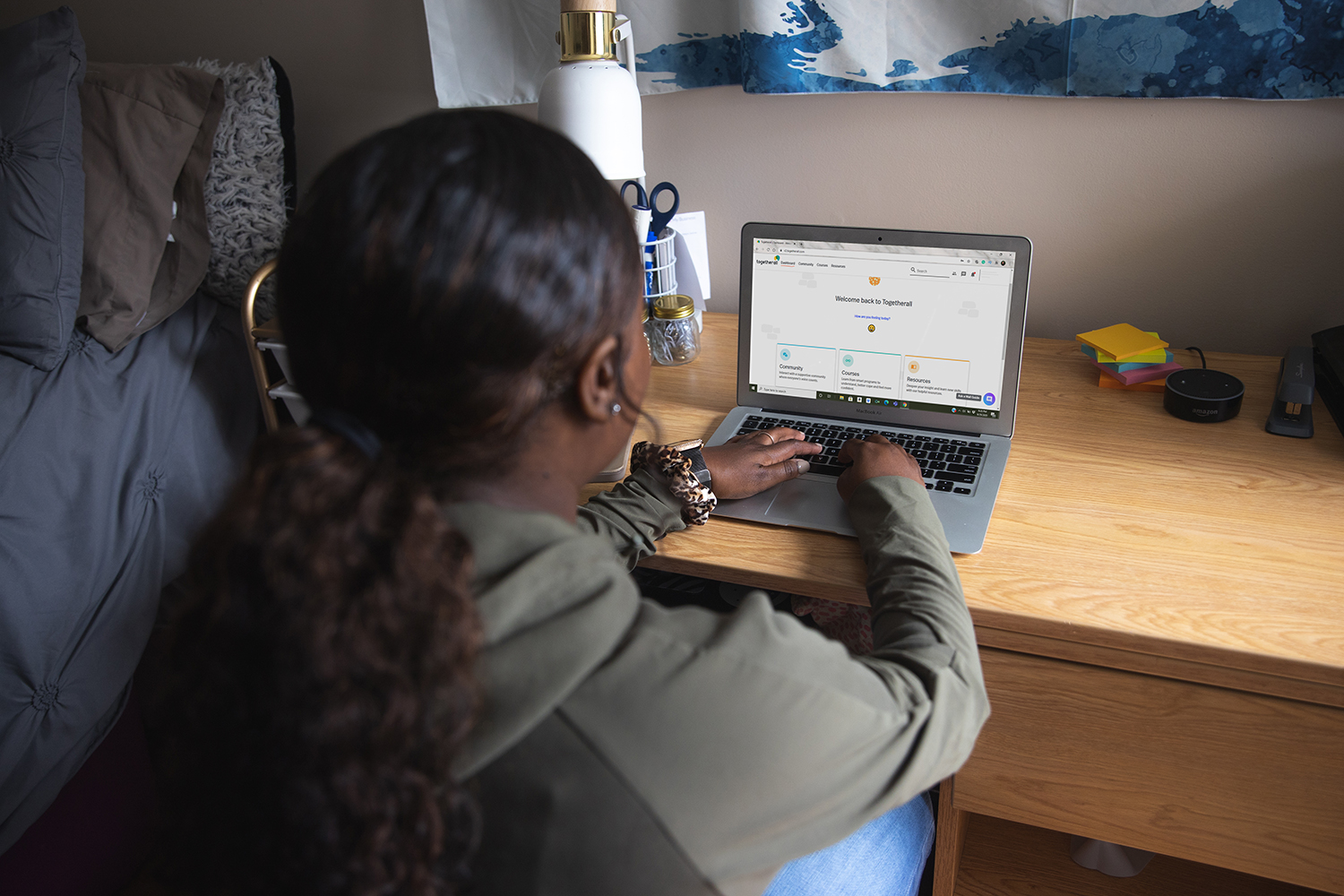
The Fall 2017 National College Health Assessment by the American College Health Association found that in the past 12 months, nearly 40 percent of college students felt so depressed “that it was difficult to function,” and more than 60 percent felt “overwhelming anxiety.”
Our students at the University of West Florida align with the national statistics. In our 2017 spring survey, close to 38 percent of students reported feeling depressed and nearly 60 percent felt anxiety.
The issue of mental health on colleges campuses has become a national conversation. And for good reason: we know that individuals aged 16 to 25 are at a high risk for mental illness, substance abuse and suicide. We also know that they are among the least likely to seek help. Students are enrolling in state universities with a greater and urgent need for mental health programs, and depression in college students is at an all-time high.
Confronting a crisis
On April 17, the Harvard T.H. Chan School of Public Health hosted an expert panel featuring leaders from academia, mental health advocacy and psychology. The discussion, “College Students and Mental Health: Confronting an Emerging Crisis,” addressed the pressing need to make psychological well-being a priority on college campuses.
There isn’t a magic button to push that will immediately solve this emerging crisis. Experts agree, however, that there are several ways colleges can become better equipped to meet students’ mental health needs. This includes removing barriers to treatment, dismantling stigma, supporting students in need and promoting good wellness habits, like getting proper sleep, exercise and nutrition.
Mental health support on campus
Our college counseling centers must be able to provide immediate and appropriate professional services that can forestall serious behavioral incidents and reinforce academic progress and success.
At UWF, we listen to students, and we put their needs first. It is our responsibility to provide a healthy and safe environment for those learning, working and living on our campus. Surveys of students across the state verify that counseling services enable them to make good decisions at critical times in their educational and social development. For some, this kind of support makes the difference between going on to graduate and pursue their career goals or dropping out altogether.
Having easy access to mental health programs on college campuses is vital.
According to the International Association of Counseling Services, college campuses should have a minimum staffing ratio in the range of one full-time, professional staff member to every 1,000 to 1,500 students.
Last year, UWF student and military veteran Timothy Jones and I joined with the presidents of all 11 other public universities in the state, along with police chiefs, mental health counselors and the Board of Governors, to rally support for additional mental health counselors and law enforcement officers on our campuses.
Part of the “Safer, Smarter, Stronger” initiative, the rally showcased how important it is to work together, with the governor, the legislature and our universities, to aid in student well-being and success. We effectively advocated for increased funding to support mental health services.
Increasing access to services
UWF’s Counseling and Psychological Services (CAPS) has already begun to increase its capacity. Licensed mental health counselors Michael Myers joined the CAPS team in April, and Shannon Preston will join the team in June. Through a campus-wide healthy campus initiative, UWF will build and implement a public health framework focused on reducing risk and promoting mental health for all students. We envision becoming a mental health friendly campus. By hiring additional mental health counselors, increasing early intervention, prevention, and resiliency building programs and embedding therapists in both the residential and academic environments, we will reinforce the importance of mental health. The resources and services are there, and we want students to use them, even if it’s just to “check in.”
As part of this ease of access, I’m excited to announce a new CAPS initiative called “Let’s Talk.” Based on a nationally-recognized model developed at Cornell University, the program will launch this month and will feature CAPS counselors getting out of the office and going to our students. Students will find CAPS staff in residence halls and other high-traffic student areas. No appointments will be necessary—just brief consultations and information when and where students need it.
A variety of programs and exercises
Another CAPS program designed to help students recognize symptoms of stress and anxiety and develop coping mechanisms is our Biofeedback Therapy technique thanks to a technology grant from our Provost’s Office. Biofeedback uses highly sensitive computerized instruments that indicate stressed and relaxed states. I had the opportunity to interact with the emWave Biofeedback program and watch it monitor my stress levels earlier this month when I visited CAPS. I paced my breathing using a colorful mandala breathing pacer to relax. The machine showed that my breathing was “in harmony,” which meant I was not stressed. This therapy emphasized the control we have of our physiological functions and how we can use this awareness to reduce our stress and anxiety. I encourage all UWF students to schedule a free appointment for a biofeedback assessment.
I also participated in an expressive art exercise, a therapy alternative offered each semester to UWF students. This exercise gave me an idea of what students experience when they join the expressive arts group at CAPS. In that group, students use art forms such as drawing, painting and coloring in order to express emotions and develop coping tools. The exercise I participated in focused on using art to create a safe place emotionally for coping.
Mental health all year, not just the school year
What about during a summer break or semester off? When a student isn’t taking classes but wants to continue mental health services, UWF’s “Bridge to Good Health” offers a solution to continue care.
It’s our goal to ensure CAPS programming helps students manage, cope and grow with the stress associated with school and life in an accessible, flexible format.
And on a lighter note…don’t worry, our wildly popular Paws and Play program with the UWF Library and local chapter of Pet Partners will continue. Keep an eye out during exams for volunteer dogs that will help relieve stress with a few slobbery kisses.



